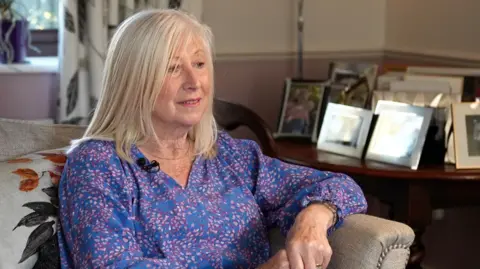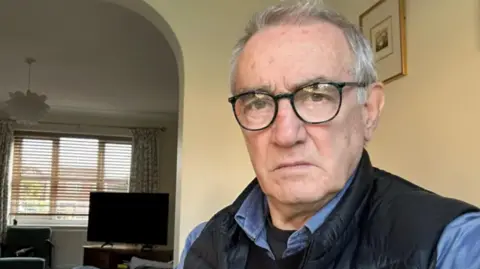'New breast cancer pill gave me four years of extra time'

 Getty Images
Getty ImagesA new type of drug for one of the most common kinds of advanced breast cancer is now available on the NHS in England.
Some 3,000 women a year could benefit from capivasertib after a clinical trial showed it can slow progression of the disease, and shrink tumours in a quarter of people.
The drug has been given the green light for NHS funding by England's drug assessment body.
It's one of a range of treatment options available to people whose cancer has spread and is no longer curable, but a cancer charity said breast cancer drugs should be approved more quickly.
Breast cancer is the most common cancer in the UK, with one in seven women affected in their lifetimes and 75% surviving for 10 years or more after diagnosis.
If the cancer returns and spreads to other parts of the body, treatments aim to control it, reduce the symptoms and improve quality of life.
Possible treatments include chemotherapy, radiotherapy and drugs that help to stop the cancer growing - either by blocking hormones, boosting the body's immune system or targeting what makes cancer cells grow.
This new drug capivasertib is a targeted therapy. It works in a new way, blocking the activity of a protein molecule called AKT which drives cancer growth.
Scientists started working on the drug's development 20 years ago and say it's the most effective cancer drug they've seen for advanced cancer.
"It presents a very effective option that can work for a long time - many months, and in some people it can be years," said Prof Nick Turner, lead researcher and professor of medical oncology at the Institute of Cancer Research and The Royal Marsden.
In trials, in 708 women, when combined with hormone therapy, the drug doubled the time the cancer took to grow, from 3.6 months to 7.3 months. It also shrank tumours in 23% of patients.
"It can substantially delay chemotherapy which many women fear because of the side-effects," Prof Turner added.
"Advanced breast cancer is highly treatable and we want kinder, better treatments."
'Four years of extra time'


Linda Kelly, 67, is a keen gardener who keeps active by cycling 60 miles a week. She also does pilates.
Breast cancer has spread to her bones and chest wall.
But she's had "fantastic" results from the new drug capivasertib.
"It does let you have a normal kind of life and you forget you have cancer," she said.
"You feel the drug is working and you can be a lot calmer - it's given me nearly four years of extra time."
Linda and her husband are now planning to travel. She says the drug has given her hope.
"It does make you think about your life, and what you want to do with your life in the future - but at least you feel well enough to make those plans and confident enough as well to fulfil some of those plans."
The drug is suitable for those with certain gene mutations that affect up to half of people with hormone receptor positive secondary breast cancer - the most common type, which grows in the presence of oestrogen.
Professor Peter Johnson, clinical director for cancer at NHS England, said it offered "an additional option" for some whose cancer has progressed despite previous hormone therapy - but it wouldn't be suitable for everyone.
Claire Rowney, chief executive at charity Breast Cancer Now, said she was "delighted" that the drug would offer some people "the hope of more precious time to do what matters most to them".
But she said patients had "faced unnecessary delays in accessing it" after the drug was initially rejected by NICE, and breast cancer drugs should be approved more quickly for those who need them.
"NHS England must now put in place prompt genetic testing to ensure those eligible receive capivasertib without further delay," she said, adding that Scotland should also consider funding the treatment quickly so that patients across the UK would have access.


























